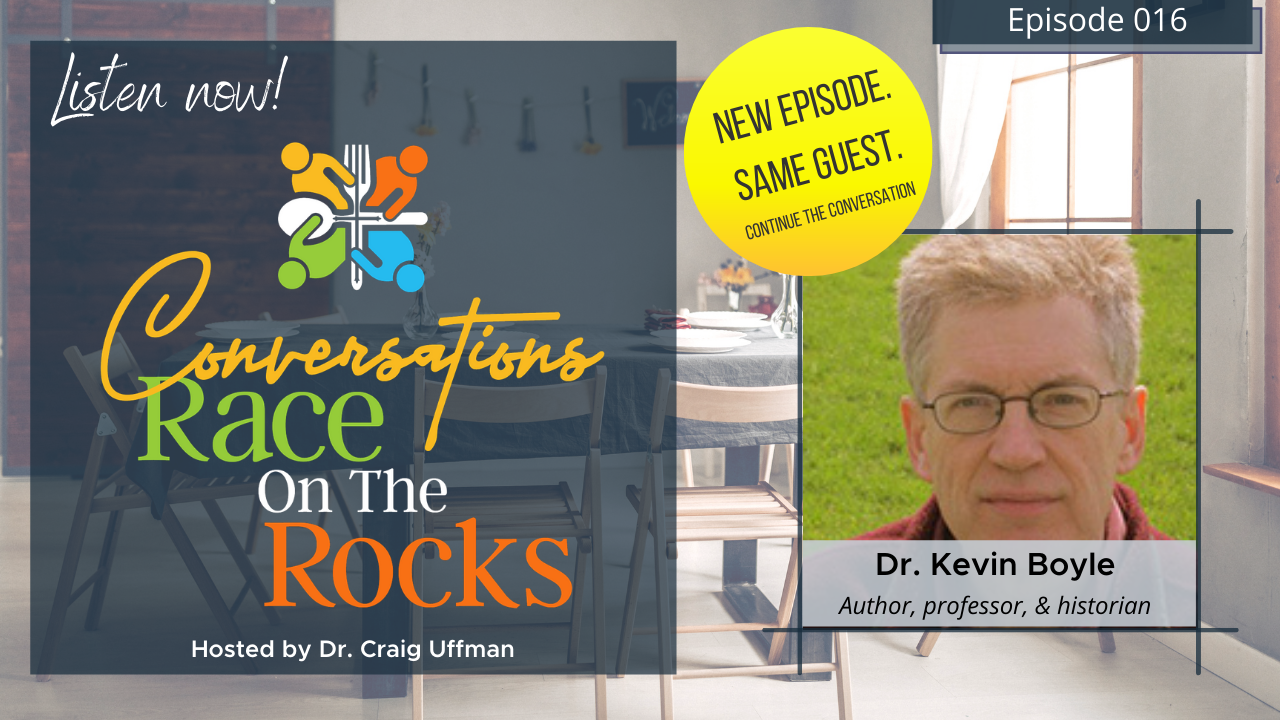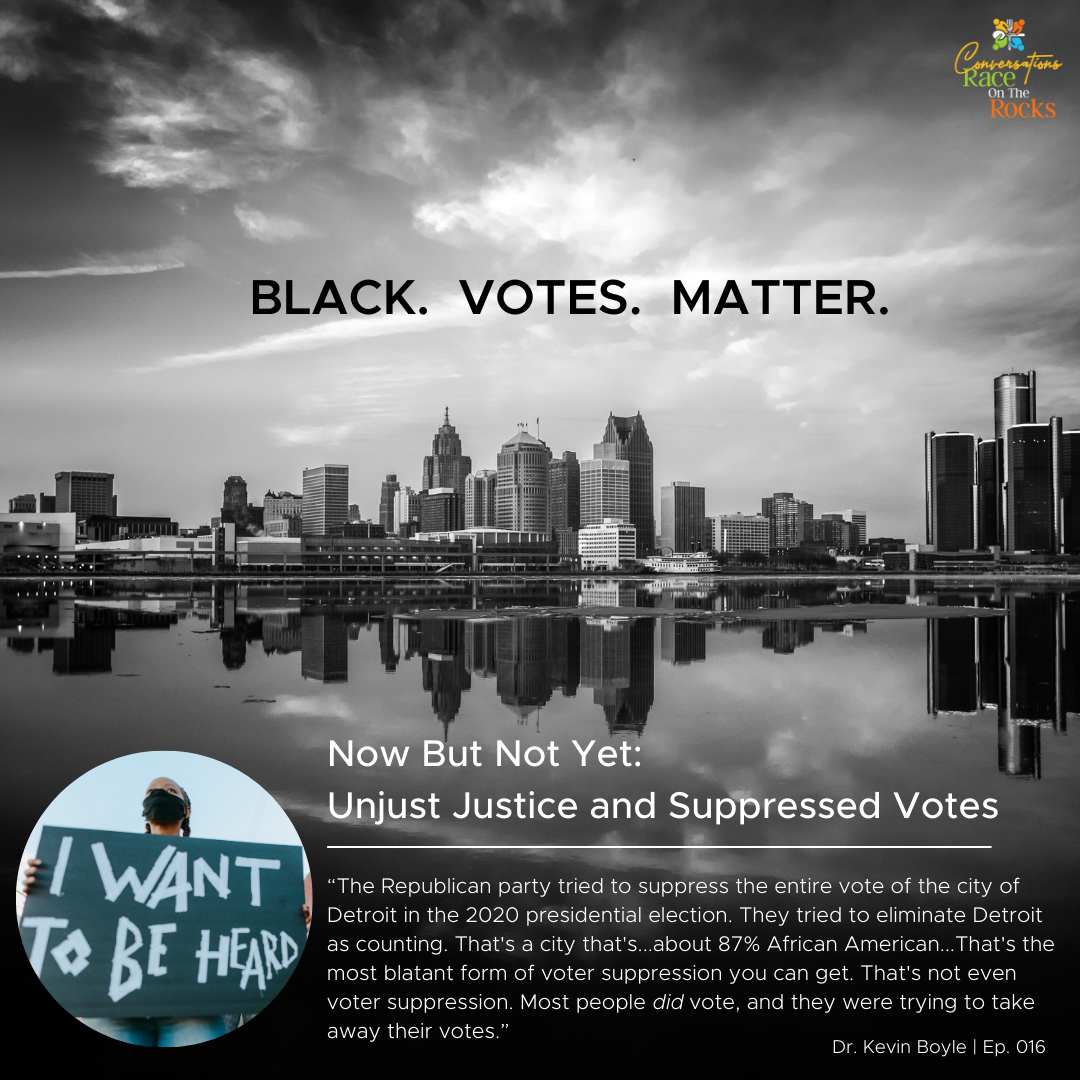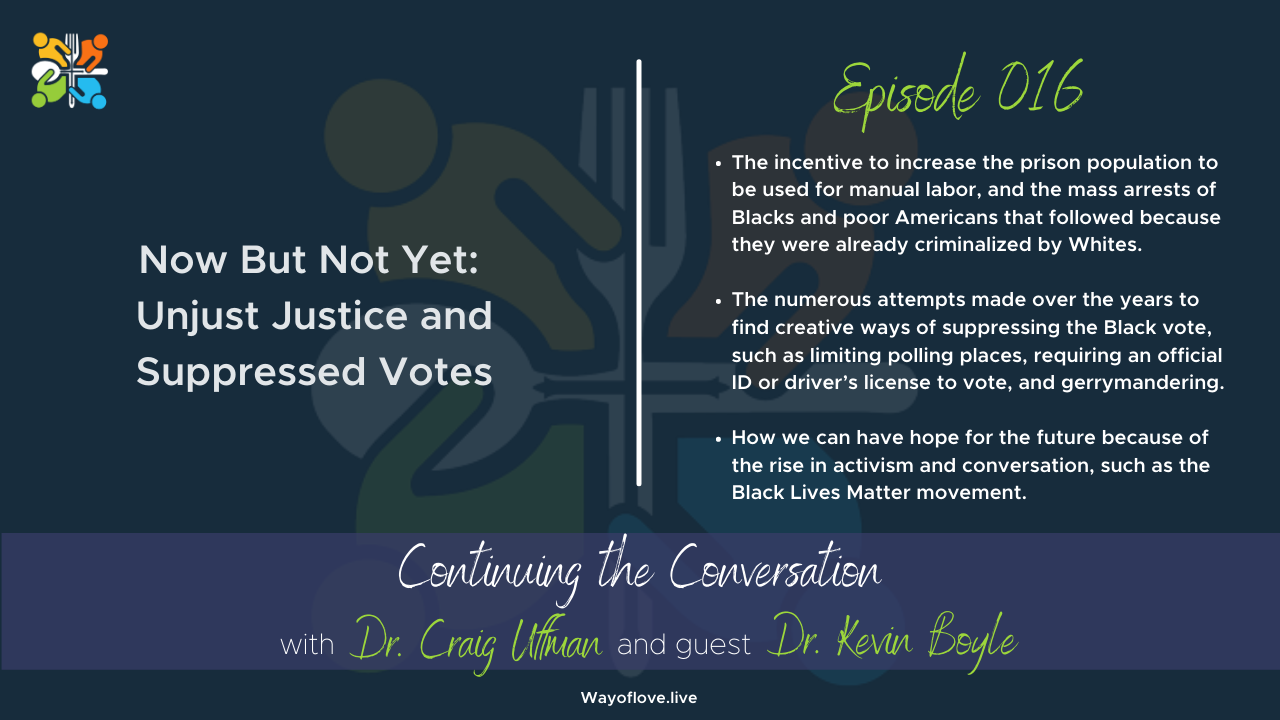“You don't go out and march if you don't believe change is possible...Americans are going to disagree about what that change should look like, and some of it is going to lose momentum as it passes through the political system, but once you've unleashed the possibility of change, it can be really hard to control that.” - Dr. Kevin Boyle
Listen now on Spotify, Apple Podcasts, Google Podcasts, Stitcher and more!

In our last episode, Dr. Kevin Boyle joined us to help us understand how the Reagan coalition led to three decades of law and order politics taking precedence over civil rights enforcement. We also briefly discussed the war on drugs and how that tied into issues of race and the impact that it had on minorities, but that was really just a brief introduction to it.
We now pick up where we left off in that conversation, digging deeper into the problem of mass incarceration that resulted from the war on drugs first initiated by Richard Nixon, and we also begin to talk about a highly controversial topic even today – protection of minority voting rights.
As a reminder, Dr. Boyle is a professor at Northwestern University specializing in 20th century United States history. He has a particular focus on modern American social movements, such as the Civil Rights Movement (which, of course, happens to be our focus). He also has a long list of publications and honors including fellowships from the National Endowment for the Humanities and the Andrew Carnegie Corporation. He is the highly acclaimed author of Arc of Justice: A Saga of Race, Civil Rights, and Murder in the Jazz Age, which was a finalist for the Pulitzer Prize and won the National Book Award for Nonfiction and many others.
Join us today as we dig deeper into the events in United States history that have shaped the racial landscape of today. We discuss the increased incentive to increase the prison population due to having criminalized American Blacks and poor Americans. Dr. Boyle also talks about voter suppression and how numerous attempts have been made over the years, especially by Republican politicians, to find creative ways of suppressing the Black vote.
Dr. Boyle stresses, however, that hope is not lost. We have seen a rise in activism and conversation, such as the Black Lives Matter movement, in recent years which indicates that people believe that change is possible.
While this unfortunately closes up my conversation with Dr. Boyle, I hope that you will join me next time as I bring on another guest who will talk to us about how Christian commitments have mobilized political resistance to racism. Be sure to invite your friends to listen in as well!
Questions for Clergy and Other Group Leaders
- How did the economics of prisoner leasing create incentives for municipalities to arrest more people?
- How does the reality of mass incarceration affect non-minority voting?
- What strategies have been pursued since the Voting Rights Act of 1965 to suppress non-White votes?

Show Notes
[3:06] – Dr. Uffman returns to the conversation around the experience of the young Black man or woman at the time, referring to their experience as a triple whammy.
[4:07] – Dr. Boyle makes a connection between a local economy collapsing and illicit economy.
[6:01] – The Bill Clinton administration, as Dr. Boyle explains, took a bipartisan approach by encouraging Democrats to embrace Reagan's politics.
[7:07] – Dr. Boyle describes the language used by both parties to describe some Blacks, language such as super predators.
[8:06] – Dr. Boyle discusses how mandatory sentencing led to a vast increase in the prison population.
[10:07] – We created a profit incentive, as Dr. Uffman points out, for the arrest of people who could do manual labor, leading to the poor and Blacks being arrested because they were already criminalized by Whites.
[12:49] – Dr. Uffman reflects on how many Blacks are unfairly trapped in patterns of poverty.
[14:30] – Dr. Boyle defines what the Voting Rights Act of 1965 was and what it put into effect.
[15:55] – In the late 1990s and early 2000s, some Republicans were attempting to suppress the Black vote in sneaky ways such as limiting polling places in predominantly Black communities.
[18:17] – Dr. Boyle gives an example of the Republican party recently attempting to suppress the entire vote of Detroit in the 2020 presidential election.
[21:06] – An example is offered and described by Dr. Uffman of attempting to suppress votes by requiring an official ID or driver's license.
[22:47] – Dr. Boyle explains how gerrymandering works in different ways on a racial basis such as splitting up a Black community between two White communities.
[24:45] – Gerrymandering can actually reduce the value of a singular vote.
[27:29] – Dr. Uffman prompts Dr. Boyle to focus on hope for the future, and Dr. Boyle credits the Black Lives Matter movement as a reason to have hope.
[30:09] – Dr. Boyle reiterates that there is disagreement around the solution to the problems such as whether or not we should defund the police.
Links and Resources
James Forman Jr. – Locking Up Our Own: Crime and Punishment in Black America
Connect with Dr. Craig Uffman:
More from Dr. Kevin Boyle:

